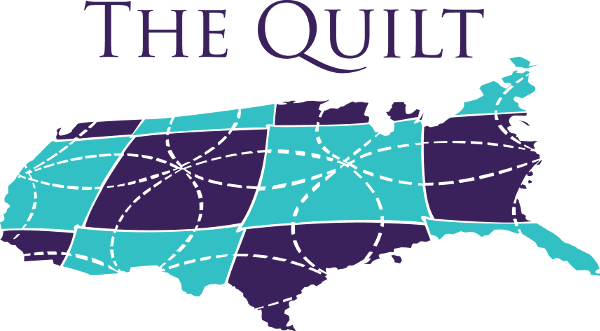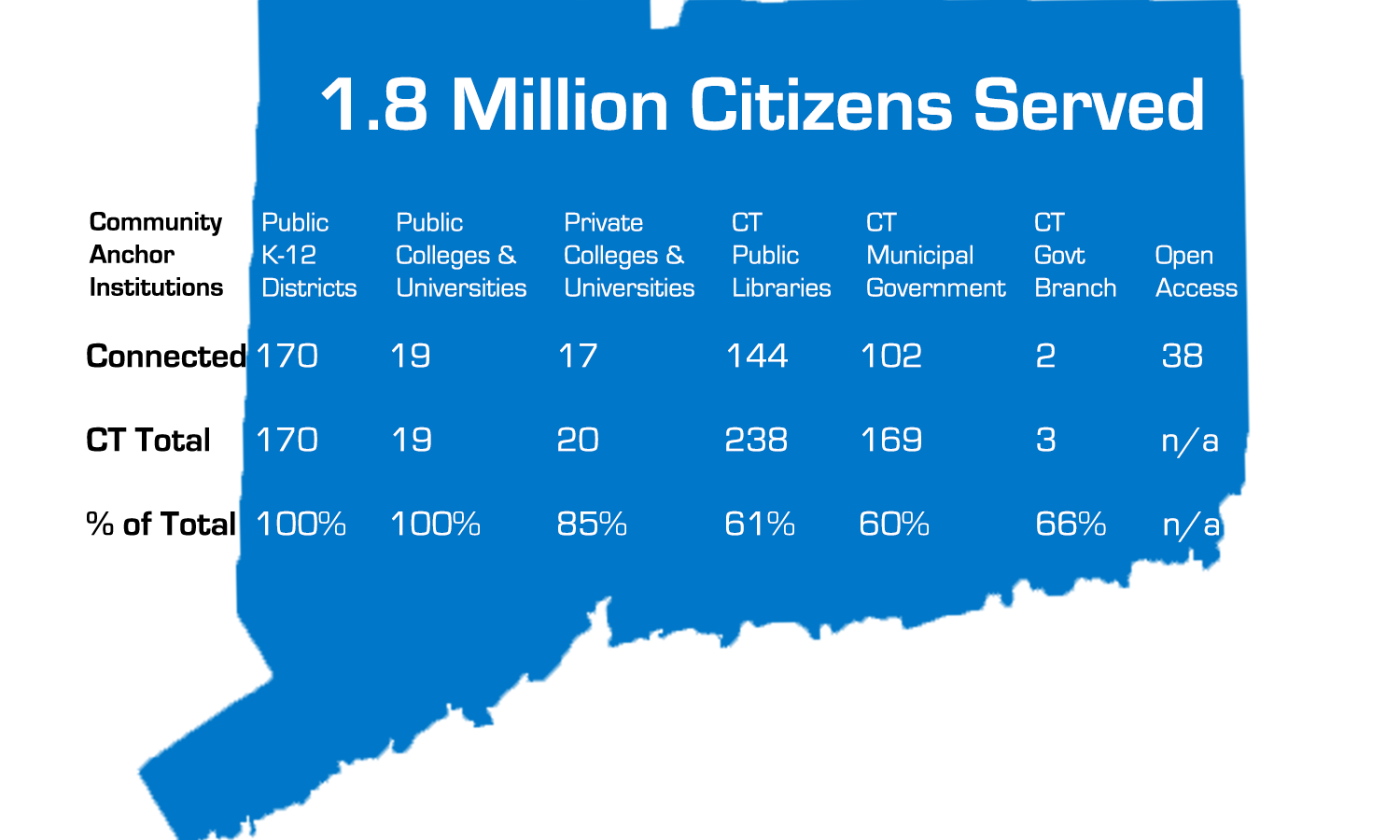One of Connecticut Education Network’s (CEN) proudest accomplishments is the degree to which they support Connecticut’s public sector, in particular, public K-12, public libraries, and municipal governments. In October, Education Super Highway’s “State of the States” report announced that CEN provides access to the Internet at 100 Kbps/per student or faster in 100% of Connecticut’s K-12 school districts. In addition, CEN has entered the third year of a project to move libraries to high-speed fiber connections. With this project CEN has connected 54 libraries through the first three phases with an additional 22 libraries committed to connect by the end of phase four and five. Eligible libraries who choose to pursue grant funding provided by the Connecticut State Library, like their predecessors, will transition from DSL or cable Internet connections (3 – 12 Mbps) to CEN’s fiber optic network supporting speeds of 1 Gbps initially and providing ample capacity for growth to 10 – 40 Gbps. CEN also added 20 municipalities and 7 private nonprofit organizations across the State to the existing connected community in 2018.
To ensure the network is ready to serve a growing member base and bandwidth demands, CEN completed a series of network upgrades adding 200 Gbps connectivity to each of the three core routers, more than doubling their capacity. CEN also upgraded the monitoring portal with a Grafana User Interface (UI), enhancing network performance monitoring and improving capacity management, and implemented Ansible to help automate network software updates. CEN launched a new website in March giving members quick and easy access to the tools they need to maximize their connections.
In addition, CEN became Mutually Agreed Norms for Routing Security (MANRS) certified, the global initiative supported by the Internet Society that increases overall network security and provides crucial fixes to reduce the most common routing threats including filtering, anti-spoofing, coordination and global validation.
CEN also established three new advisory councils with focus on: Service Management, Technical Advancement, and Engagement and Professional Development. All councils are co-chaired by members with administrative support from CEN team members. The three councils provide CEN with guidance and recommendations for service development, network applications and tools, training and outreach. CEN hosted a number of strategy workshops throughout the state with member participation completing S.W.O.T. analyses and using the results to develop a comprehensive five-year strategic plan.
CEN completed its second year without any general fund support from the state, and as a Universal Service Administration Company (USAC) E-Rate Service Provider, helped most K-12 schools and many libraries take advantage of federal E-Rate subsidies. USAC’s Schools and Libraries (E-rate) Program provides discounts to keep students and library patrons connected to broadband and voice services.
Lastly, CEN’s continued membership growth and operational efficiency has allowed for bandwidth tier price stability for the fiscal year beginning July 1, 2019. This included a price reduction in the 50 Mbps tier to help those members transitioning up from 25 Mbps. CEN’s bandwidth tier pricing includes multiple value-added services: DDoS detection and mitigation, CIPA compliant web filtering, on-demand burst ability, DNS hosting, private ethernet circuits, and access to Internet2 and multiple backbone Internet providers. The net result for the CEN membership is an ISP offering that provides them unmatched performance, reliability, and an annual cost savings of over $20M when compared to alternative providers.
CEN will continue to be the trusted partner through which Connecticut’s digital and human networks, connect, collaborate, and share resources to realize the full potential of a robust statewide network.

